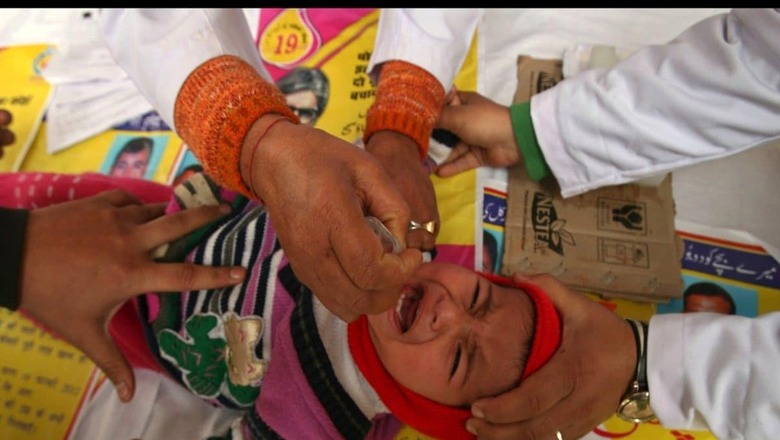
views
It was in the last quarter of 2013 that the Union Health Ministry in Delhi made a claim regarding the eradication of polio from India. It was almost six months later in April 2014 that World Health Organisation (WHO) put its official stamp on this. The region, mainly South East Asia, including Bangladesh, Bhutan and Sri Lanka, was also declared polio-free around the same time. To date, however, Pakistan and Afghanistan are the nations where polio cases continue to be reported.
Incidentally, it was two decades earlier in 1994 that a pilot project on Reproductive and Child Health (RCH) care was launched in East Delhi. The Health Ministry of Delhi was then headed by Dr Harsh Vardhan, who remained the Union Health Minister for some time. Repeated, long, sustained and intensive polio vaccination drives could ensure this polio-free label for India and some of its neighbourhoods. Radio and TV jingles, hoardings, reserving select Sundays for vaccination drives, and setting up long cold chains in health facilities were some of the steps taken in the fight against polio. All this came in handy in undertaking the vaccination for Covid when vaccines became available in India in 2021.
Amid multiple crises, economic, political and extraordinary inflation, Pakistan has reported its first polio case of 2023. The health authorities of Pakistan have confirmed that a three-year-old boy from Bannu district in Khyber Pakhtunkhwa (KP) province is the latest recorded victim of polio, according to Dawn newspaper. However, it is not clear how the boy contracted the disease and an ongoing health investigation may bring out the facts.
In February 2023, one case of polio was reported from Afghanistan and that is a cause of concern for India and other neighbours. This means that poliovirus, though dormant, is present in these countries. Due to strained relations with Pakistan, there is very little human traffic between Delhi and Islamabad. But if and when this changes, a lurking suspicion about the trans-border movement of poliovirus can be a logical thing. This could mean enhanced surveillance for the protection of own citizens.
In 2022, at least 20 cases of polio were reported in Pakistan and one case was detected in 2021. In 2020, the year of the Covid pandemic, at least 84 cases were reported in Pakistan. Last year in June, August and October, vaccination staff and their escorts (policemen) were targeted by terrorists in tribal areas of Pakistan. While some were injured, some involved in anti-polio measures lost their lives.
The justifications for anti-vaccine sentiments in the tribal areas of Pakistan are varied, ranging from suspicion about pig fat to a Western plot to sterilise Muslims. It has often been heard in remote areas that vaccines can cause impotency. Another reason for suspicion is that in 2011, the Central Intelligence Agency (CIA) had staged a fake vaccination drive to find Osama Bin Laden, who was killed on May 2 that year.
Polio cases have been reported from seven districts of KP, including Dera Ismail Khan, Lakki Marwat, Tank, Bannu, South Waziristan and North Waziristan in the past few years. Many of these areas are close to the border with Afghanistan where 43 polio cases were reported in 2021. Last year, no such case was reported from anywhere in Afghanistan, with vaccine staff reaching the remotest parts under orders from the Taliban government.
The WHO, besides the French Agency for Development (FAD) and Bill and Melinda Gates Foundation (BMGF), are at the forefront of polio eradication programmes in Pakistan. The efforts by these organisations have apparently failed to convince many among Tehrik-e Taliban Pakistan (TTP) of their utility and intentions. This is one reason for the anti-polio vaccine sentiments witnessed in the tribal areas.
One polio case being detected in Pakistan means WHO’s aim of eradicating polio from the world may take some more years. Till conditions stabilise both in Pakistan and Afghanistan.
Fortunately, for us in India, anti-vaccine sentiments very rarely, if ever, get any substantial support in any part of the country. As such, vaccination drives launched by the health authorities have been well received. Whether it was the vaccines aimed at helping the populace build immunity against the pandemic or polio vaccines, earlier administered in both public and private sector health institutions.
Sant Kumar Sharma is a senior journalist. The views expressed in this article are those of the author and do not represent the stand of this publication.
Read all the Latest Opinions here



















Comments
0 comment